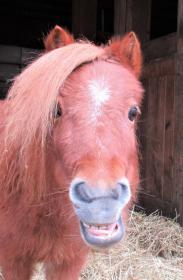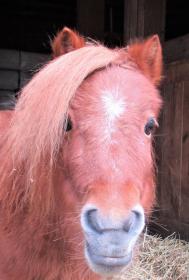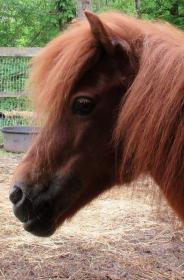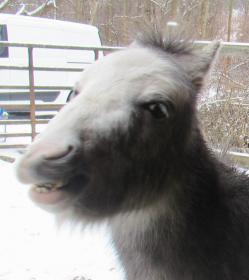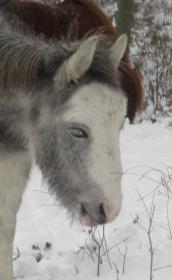IME Parrot mouth, an overbite is seems to much more seen, than a sow mouth, underbite. For whatever reasons. I have “inspected” mouths of 1000s of TB yearlings. Only on the odd occasions did I find a parrot mouth and far less of a somewhat sow mouth.
Parrot mouth is usually far more pronounced IME.
As far as the undesirability of this for potential buyers depends on the degree of the “defect” and more so on the “feelings” about it of the buyer. The majority of those “feelings” are based on old school holdover that the horse will not “do well”. The foal not being able to suckle well. Have trouble grazing, eating grains properly, hay etc. Develop teeth issues etc. European buyers of TB yearlings frown heavily on it. IMO and experience raising a few Parrot mouthed foals they never had any issues nursing. Never had any issues eating or grazing. The only “issue” with a parrot mouthed horse, esp one that have a pretty pronounced condition is it can be seen when looking at the horse from the side. The “bucked” teeth look, upper lip stick out pretty good.
To a breeder it maybe of a concern of being passed on. I have not found this to be true. We had enough foals out of mares that had the odd foal born with a parrot mouth. But never more than the one. Not sure if there have been any studies worth taking to the bank on this.
Yes, I am told it can be corrected but as explained it is far more involved than just putting "braces"on. Had a colt for a client who bred to race. The day after foaling I told him he got a really nice foal. But he was parrot mouthed. A pretty sizable one. I explained that is was a “cosmetic” condition and not to be worried because they horse wasn’t going to be sold. Of course he went to the internet to look it up. And got all kinds of conflicting “advise”. He asked to find out what it would cost to correct. I told him as much as $15,000. Plus the additional after care expenses I would have to charge. Don’t bother trust me the colt will be just fine. The horse grew just fine, big good looking and a good racehorse. Other than his upper lip stuck out pretty good. As I said to him, this might come in handy in a photo finish.
In my somewhat limited experience with either condition and we were foaling 30+ mares a year for a while. Parrot or sow mouth is pretty much there one way or another from day one. Pretty hard to miss. Esp one with an overbite. I have found it generally develops proportionately in my limited experience with foals that are born with either. I would think the majority of breeders have a limited experience. It just doesn’t happen much.
Looking at the pictures I certainly wouldn’t be concerned. Way too many other things that can and do happen that have far more ramifications.
I would never buy a horse, esp a foal without personally inspecting it. Or if using an agent, one that I know is completely on the same page as me.
Too each their own on this.

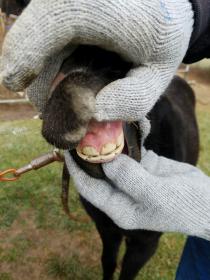
 We have been breeding Welsh for almost 15 years and I have never heard about any problems with parrot mouth or under bite. That being said, I am sure there are cases of it happening in any breed. I am not an expert on under bites, but agree with others that it doesn’t look severe and your best bet might be to consult with an equine dentist to see if there is anything that can be done to help it, or lessen the severity as the foal gets older.
We have been breeding Welsh for almost 15 years and I have never heard about any problems with parrot mouth or under bite. That being said, I am sure there are cases of it happening in any breed. I am not an expert on under bites, but agree with others that it doesn’t look severe and your best bet might be to consult with an equine dentist to see if there is anything that can be done to help it, or lessen the severity as the foal gets older.